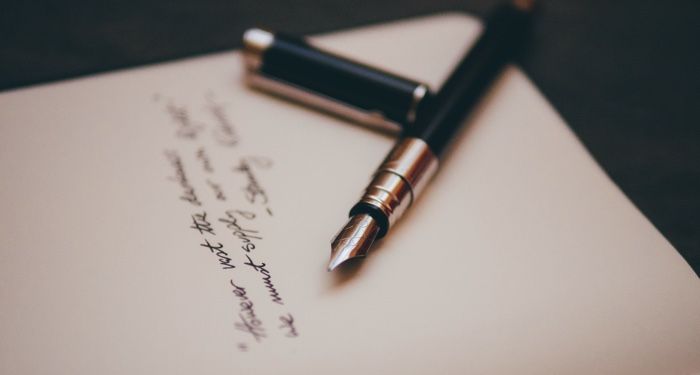
I Wrote A Poem After Every Book I Read in 2020
I wrote a poem after every book I read in 2020. I’m doing it again in 2021 and I think you should too.
At the end of 2019, I hit a reading slump. Hard. Where I’d typically be reading four, five, six books a month, I was reading zero. Zip. Nada. I kept picking up books, getting 20 or so pages in, and setting them down to never pick them up again. I meant to, of course. But, I looked at them and didn’t feel that excitement I wanted, that itch to read and read now. My nightstand became a graveyard. My relationship with reading changed, somehow, without my noticing. All the joy leaked out.
As an experiment, I decided to try writing a poem inspired by every book I finished in 2020. Yes, every single one. Yes, for the whole year. My technical editing and professional writing textbooks I read for my master’s program and all. I’d done this with all of the movies I watched in 2019 and it did change the way I consumed movies. It made me think about them from different angles. I wasn’t letting movies drone on in the background while I did something else. I couldn’t, if I was going to write a whole poem about it afterwards. No, I was focusing all my attention on them, looking for that spark that might turn into something new and creative and fun. A line or a setting or a concept I hadn’t considered before. So, I figured, why not try it with books?
The first book I read was The Writing Life by Annie Dillard. I cheated a bit with this one, I suppose. What better inspiration for writing than a book about writing? And boy did it deliver. My subsequent poem didn’t, couldn’t measure up to the book. It didn’t have the guts. But, I found I enjoyed writing it. And, I enjoyed reading the book, too, under this new light. It was like I put myself back into the reading process, doing this.
Where before I was devouring books and immediately forgetting them the minute the back cover closed, I find I still remember whole lines from The Writing Life without even trying. Simply because I spent time combing through what I’d highlighted or notated to parse out exactly what I had to say about it. I can still recite passages from it over a year later.
After the first book, I began reading with more intention. And reading more. I was wholly absorbed in each and every book I picked up, finding lines to play off of or digging through the book for new themes to write about. I started choosing books I thought would make great inspiration: Mrs. Caliban by Rachel Ingalls and Nothing to See Here by Kevin Wilson and The Seas by Samantha Hunt. Where before I’d been sticking to my usual YA LGBT+ coming-of-age novel, which I still love, I was starting to branch out more and more. Nonfiction, self-help, adult fantasy, I tried it all. What inspiration might I find in genres I hadn’t explored yet? What about audiobooks? Magical realism? Poetry?
Some of the books weren’t my jam, really, but what did that matter? There was always something to pull from them, to roll around like a marble in the mouth to try to place exactly what it tasted like. Exactly what it was I liked or didn’t like about each page and style and thought. Whether I liked it mattered less than how much it intrigued me.
I’ll be honest, a vast majority of the poems turned out terrible. Never-see-the-light-of-day-again terrible. I made no declarations that I was a poet before this project and that hasn’t changed. But they were so. much. fun. I now find myself understanding more and more what it is I look for in a novel, things that really hit home for me that I haven’t ever put into words before. I can still quote from Little Women and Mr. Splitfoot and The Low, Low Woods because, for the first time in a long time, I wasn’t reading to finish these books. I was reading to understand them and how I relate to them and the themes buried inside. I took an active role in the act of reading, again.
Writing a poem after every book I read in 2020 was a challenge. The list of poems I had to write piled up sometimes, taunting me from my to-do list week after week. I tried sonnets and long-form and haiku and rhyming. I tried Truman Capote and Stephen King and T.S. Eliot. And though it was hard, I found, where I was accustomed to boredom, my marvelous old friend delight, instead.
If you want to change your relationship with reading, or are itching for a different kind of reading challenge, why not join me in doing it the rest of 2021 too?











